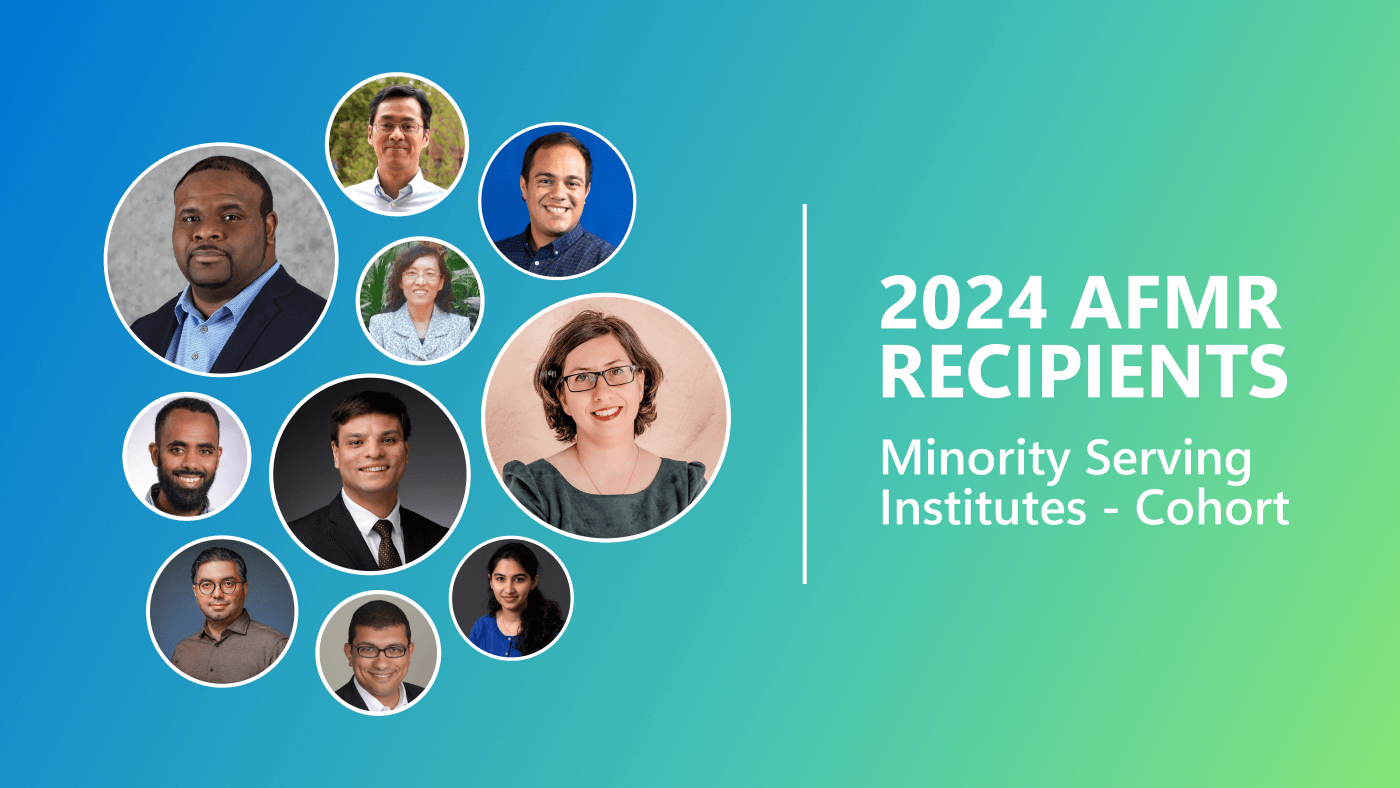
Today, as part of the Accelerate Foundation Models Research (AFMR) initiative, Microsoft is delighted to announce the 10 inaugural grant recipients through the AFMR Minority Serving Institutions grant program.
This pilot focuses on supporting historically black colleges and universities (HBCUs) and Hispanic-serving institutions (HSIs), providing them with access to the state-of-the-art tools necessary to conduct meaningful and impactful research on AI. In addition to a grant award, recipients are provided with credits they can use to access leading-edge models hosted by Microsoft Azure through Azure AI Studio (opens in new tab).
AFMR is a collaborative effort with the academic research community and part of the Microsoft pledge (opens in new tab) to support the President’s Executive Order on the Safe, Secure, and Trustworthy Development and Use of Artificial Intelligence. This program is dedicated to exploring foundation models with the aim of achieving three main objectives: aligning AI with human values and goals to enhance safety, responsibility, and transparency; improving human interactions through research at the intersection of technology and society, fostering trust and creativity; and accelerating scientific discovery in natural sciences through innovative knowledge and data approaches.
Microsoft Research Blog
Microsoft Research Forum Episode 3: Globally inclusive and equitable AI, new use cases for AI, and more
In the latest episode of Microsoft Research Forum, researchers explored the importance of globally inclusive and equitable AI, shared updates on AutoGen and MatterGen, presented novel use cases for AI, including industrial applications and the potential of multimodal models to improve assistive technologies.
Operating as a global network and resource platform, AFMR fosters interdisciplinary collaboration among researchers from various fields, addressing significant technical and societal challenges.
AFMR Minority Serving Institutions grant recipients:
- Cesar Torres, AI-Enhanced Bricolage: Augmenting Creative Decision Making in Creative Practices, The University of Texas at Arlington
- Nikita Soni, Exploring Interaction Design Space for Child-AI Visual Storytelling Creativity Support Tools, University of Illinois, Chicago
Cognition and Societal Benefits
- Muhammed Idris, Advancing Culturally Congruent Cancer Communication with Foundation Models, Morehouse School of Medicine
- Hajar Homayouni, Federated Privacy-Preserving Mulitmodal Generator for Synthetic Medical Data Generation, San Diego State University
- Junzhou Huang, Developing Foundation Models for Survival Prediction from Pathological Image and Biomedical Text, The University of Texas at Arlington
- Pedram Rooshenas, LLM-Powered Teaching Assistant for Computer Science Courses, University of Illinois, Chicago
Benchmarks, Evaluation and Measurement
- Kinnis Gosha, Evaluation of Hybrid AI Systems for Workforce Performance Evaluation, Morehouse College
- Davi Valerio de Queiroz Rodrigues, Advancing Foundation Models Towards Physical AI: Bridging the Gap Between Natural Language and Wireless Sensing, The University of Texas at El Paso
Multimodal and Crossmodal Learning
- Amr Magdy, Visual Knowledge Distillation on the Edge: An Application on Enhancing Self-Inference Cameras for Near-Real-Time Operations, University of California, Riverside
- Xiang (Susie) Zhao, Accelerating Environmental Justice Analysis using Foundational Models for Intelligent Disaster Recovery and City Planning, Alabama A&M University
By driving deeper collaboration across disciplines, institutions, and sectors, Microsoft aims to unlock the full potential of AI across greater breadth of research pursuits, application domains, and societal contexts.





